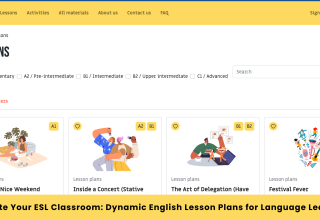What is a Transformation in Education?
Transformation is the name of a process where changes occur rapidly, whereas, in terms of education, it encompasses integrated learning. Currently,the evolution of technology and innovation has worked into mass-market competition with a customized choice. Growing demand for learning in an individualized manner has also emerged. Like all the other sectors, education can also benefit from advancement in technology. Personalized instruction affordability is only possible through transformative education innovations.
Why is it Important?
Researches in education have acknowledged the value and importance of transformative learning. The reason is that it offers an opportunity to rethink and research appropriate educational practices. Transformative learning and education are replacing traditional education methods on every level, with the new techniques of learning and classroom settings continually emerging. You can forget about the practices of learning you had in school and start thinking about digital learning. Digital learning can vary from using a tablet instead of paper or software instead of a pen.
Educational transformation entails the use of services, tools, programs, and study aids to support teaching on-site or home. Social platforms and communication networks have also become useful tools for the delivery andmanagement of digital assignments.Transformational learning has empowered students to engage in learning and expand their limits.
Advantages of Transformational Education
Educational transformation is about technology integration and innovation and about determining the overall culture of an educational institution. Through a change in learning methods, both teachers and students can improve their skills significantly. The end goal of this transformation is the same: to create a compelling and engaging learning environment.
Transformational education offers various advantages to the learning system and provides multiple opportunities for educators and students. Let us discuss some of these advantages.
-
Personalized Learning Experience
The most crucial benefit of transformation to digital methods is to let the students learn at their pace. Hundreds of educational institutions have transcended to next-generation schools and reap the benefits of personalized learning. An example of a personalized learning experience is one-on-one tutoring, which is expensive yet effective. Shift to digital learning by institutes like Bradley University and others has freed ties for teachers to address their needs. Opportunity to provide a personalized learning experience to students has made education more productive. Special needs and learning gaps are quicklyidentifiedwith adequate progress acceleration.
-
Smarter Students
Transformation in education and learning tools has enabled students to develop skills for self-directed learning. They can identify learning needs, research resources, and apply information while evaluating resultant feedback. Transformative learning has sharpened critical thinking and decisive skills, in addition to engagement. Based on analytic reasoning, students now explore open-ended questions and use logic to learn and make decisions. As opposed to temporarily memorizing a textbook, students now have various sources to learn and enhance their capabilities.
-
Addressing Worldwide Audience
Another advantage of the transformational education system is that it addresses a worldwide audience. Students can now remotely be a part of any classroom irrespective of geographical or cultural limitations. It allows teachers to bring their knowledge and expertise to an audience beyond the boundaries of a school. Students from every region of the world can now attend and contribute to a session. Thus creating global conversations of various views and creating an enriched learning experience. An added benefit is flexibility in learning duration and time for students. It allows them to stay updated with their studies while fulfilling other experiences like internships or temporary jobs.
-
Assessments
Transformative educational methods have enabled the use of content-embedded assessments, digital sources, simulations, games, and adaptive learning processes. Students motivate themselves and improve based on their self-tracked progress. Digital transformation has also added collaboration in addition to assessments through which teachers create and manage groups. Collaborative learning enables teams everywhere to co-author documents and presentations.
-
Modular Learning
Another powerful advantage of transformational education is the possibility to create learning modules fast and efficiently. Educators can now design their courses with access to the best content from previous colleagues and other institutions. Using the digital presence of material, educators can createa curriculum that satisfies a broad range of departments, competencies, and difficulty levels. Digital tools support educators in measuring how students learn effectively and adjust to learning modules.
-
Motivation and Accountability
Students using digital tools for learning have become engaged and interested in expanding their knowledge base. They may not notice, but transformational learning sub-consciously engages them in teamwork, problem-solving, and peer education. Since digital learning is interactive, it provides a higher perspective as compared to traditional book reading or lectures. Engagement allows students to better connect with their learning content and digest information. The sense of responsibility and accountability is also enhanced when students can track their progress.
Final Word
Transformational learning has changed the way the educational system operates and delivers to students. Students feel more engaged in their studies, whereas educators have a broad audience to address. Digital and remote learning methods have replaced traditional one-sided lectures and textbook learning to a more interactive and engaging approach. It has allowed students to pursue other ventures along with their studies to enhance the professional experience.











